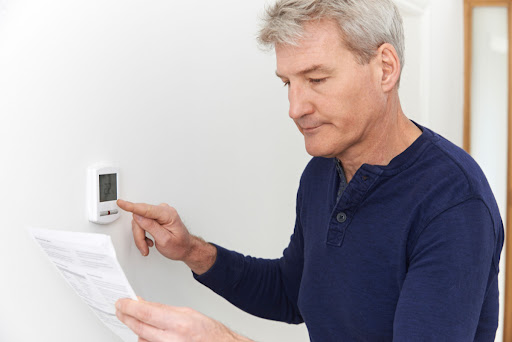It’s no secret that the HVAC industry is constantly changing. These developments can impact homeowners throughout the country and play a large role in determining which heating and air conditioning systems you choose to install in your home.
As you may be aware, significant changes are coming in 2023 that all homeowners should know about. Starting on January 1, 2023, the Department of Energy will implement new regulations that affect the minimum efficiency required for a wide range of HVAC equipment. This equipment includes everything from central air conditioners to packaged heat pumps.
Are you worried about how these new regulations will affect you? We’ll go over everything you need to know about the HVAC regulations below.
What Are the 2023 HVAC Efficiency Standards?
As we mentioned above, the 2023 HVAC efficiency standards will impact various types of HVAC systems — most notably, air conditioning and heat pump systems.
When January 1, 2023, rolls around, you can expect the minimum efficiency ratings of these systems to rise across the board. Efficiency is measured with a seasonal energy efficiency ratio (SEER) rating. The higher the SEER rating, the more efficient an HVAC system will be.
HVAC systems with higher SEER ratings are known for being more environmentally friendly because they consume less energy. The Department of Energy is pushing this new initiative in an effort to reduce energy consumption throughout the country.
It’s understandable if you’re feeling confused. Fortunately, we’re here to break this important information down so that it’s easier to understand. Let’s discuss everything you need to know about the 2023 HVAC regulations in more detail below.
Central Air Conditioners
The 2023 HVAC efficiency standards for air conditioners will vary by region. In the South and Southwest regions, you can expect the minimum efficiency rating for air conditioners to increase from 14 SEER to 15 SEER. What does this mean, exactly? Well, if you live in Las Vegas, NV, or the surrounding areas, you can only install an AC unit that is at least 15 SEER starting in the new year.
Alternatively, homeowners that live in the North can expect the minimum efficiency of air conditioners to increase from 13 to 14 SEER.
Heat Pumps
Unlike central air conditioners, the new minimum efficiency standards for heat pumps won’t vary by region. Instead, you can expect the minimum efficiency of these HVAC systems to increase from 14 to 15 SEER for the entire country.
What Is SEER2?
The new minimum efficiency ratings aren’t the only change you should be aware of. There will also be new regulations impacting the testing procedures for HVAC equipment. These new test procedures are meant to exhibit field conditions more accurately and will be more reflective of the installations that occur inside homes.
Since the testing procedures are changing, this will also impact the metrics we use to measure efficiency. Instead of SEER, EER, and HSPF, the new metrics will be SEER2, EER2, and HSPF2.
There are already SEER2 equivalents for SEER ratings. For example, if you’re planning to install a 15 SEER air conditioner sometime in the next year, you can expect that air conditioner to have a 14.3 SEER2 rating instead. Similarly, air conditioners with a 14 SEER rating will be equivalent to a 13.4 SEER unit, and so on. SEER2 ratings are lower than SEER ratings because the testing procedures are much more comprehensive and difficult.
Since we’re going over everything you need to know about the 2023 HVAC regulations, we thought it would be important to mention SEER2. Hopefully, you feel more educated about SEER2 as a metric and how it differs from SEER going forward. If you have questions, don’t hesitate to contact your local heating and cooling experts for further information.
How Will the HVAC Regulations Impact You?
All-in-all, the 2023 HVAC efficiency standards will only affect you if you’re planning to replace your air conditioner or heat pump soon. If your current HVAC system is new or appears to be working just fine, you won’t need to replace your unit with a higher-efficiency model. Homeowners should rest assured that they can keep their current HVAC systems, even if they don’t fit the new minimum efficiency ratings set in place by the DOE.
If your air conditioner is getting older, there are ways to extend its lifespan. For starters, it’s important to replace the air filter regularly, clean the outdoor unit, and schedule routine maintenance services with a professional technician. Fortunately, Pure Plumbing & Air offers Las Vegas HVAC maintenance to ensure every component is working properly.
Upgrade Your Comfort With Help From Our Experts!
There you have it; we’ve gone over everything you need to know about the 2023 HVAC regulations. When it comes down to it, there are many benefits to installing an air conditioner with a higher efficiency rating. High efficiency will help you conserve energy, which in turn can lower the cost of your energy bills.
However, it’s important to note that HVAC systems with higher efficiency ratings tend to have higher upfront prices. When the new efficiency requirements start up in the new year, you can expect to pay more for an installation.
If you’re ready to upgrade your HVAC system, don’t wait for the 2023 HVAC efficiency standards to go into effect. Instead, get in touch with Pure Plumbing & Air today! We’re proud to meet all of your comfort needs, whether you need a heating system, air conditioner, or water heater installation in Las Vegas, NV. Contact us right away to schedule an appointment!

